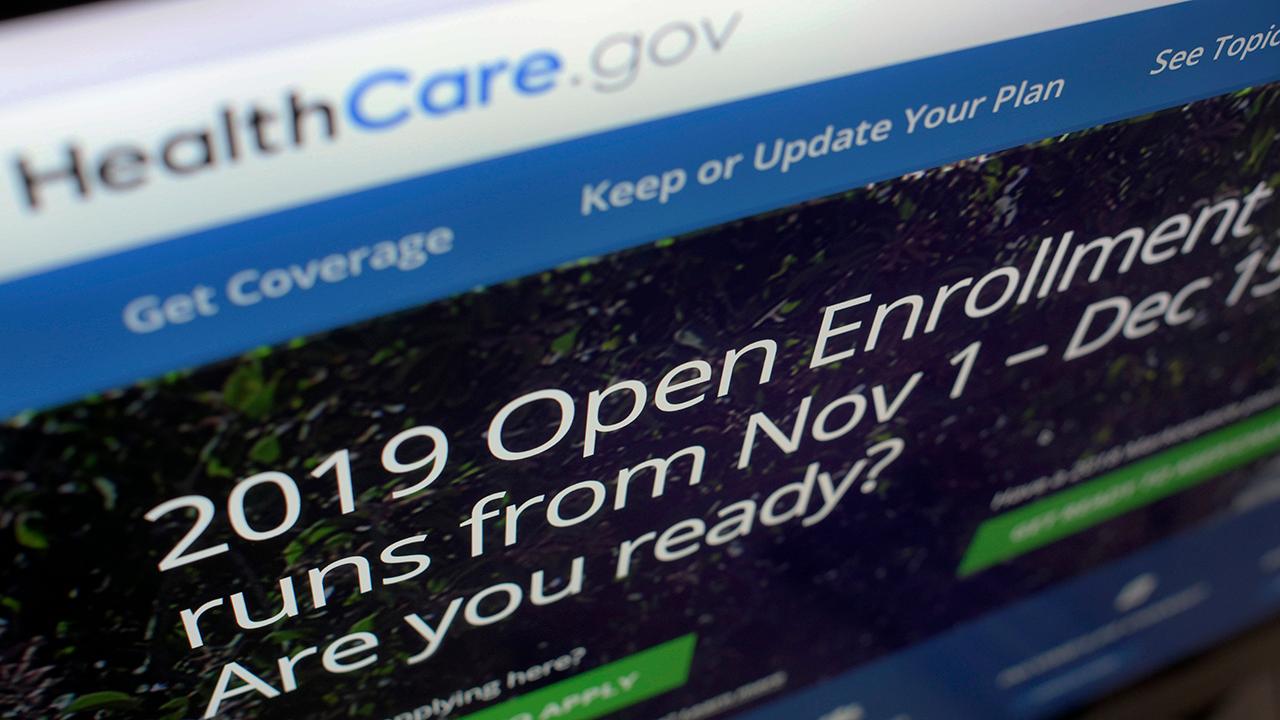ObamaCare sign-ups fall amid GOP effort to kill it
Sign-ups for the Affordable Care Act (ACA) dipped slightly this year after a federal judge in Texas ruled the signature legislation of the Obama administration unconstitutional on Friday.
Approximately 8.5 million Americans signed up for ACA coverage for 2019, compared to 8.8 million people at the same time last year, a decline of about 4 percent, according to data published by the Centers for Medicare & Medicaid Services (CMS).
Sign-ups for 2019 spiked in the final days of enrollment, which ended Saturday for the federal exchanges. Some states extended the sign-up deadline, however.
And while it’s possible that efforts by Republicans to roll back ObamaCare may have affected sign-up numbers -- U.S. District Judge Reed O’Connor struck it down as unconstitutional one day before the sign-up deadline in most states -- CMS Administrator Seema Verma suggested it could also be a result of a historically low unemployment rate, 3.7 percent -- the lowest in nearly 50 years.
“It’s possible that more Americans have employer based coverage, and don’t need exchange plans,” she said in a statement.
The Trump administration has also made it easier to buy cheaper alternative health care plans.
“This Administration has taken strong steps to promote a more competitive, stable health insurance market and these steady enrollment numbers are yet another sign that the Administration’s efforts are working,” Verma said.
Sign-ups were thrown into chaos late Friday when O’Connor sided with a group of Republicans -- Texas Attorney General Ken Paxton spearheaded the lawsuit, alongside 19 states -- who sued in February to end the law, arguing that Congress had eliminated a key provision in the legislation when it passed the 2017 Tax Cuts and Jobs Act. The tax overhaul repealed the individual mandate, which required Americans to either get health insurance or face a financial penalty.
The Supreme Court originally upheld ObamaCare on the principle that the mandate was a tax. Although Congress does not have the ability to require people to buy health insurance, or a car, or a house, a narrow majority of Supreme Court justices considered that particular provision part of lawmakers’ taxing authority.
But when Congress removed that penalty, it essentially gutted the taxation part of the law. States then argued that the entire basis for the health care act’s standing as constitutional is gone, meaning the entire law is unconstitutional.
Because the ruling is expected to be appealed to the U.S. Supreme Court, the law will remain in place for now.




















